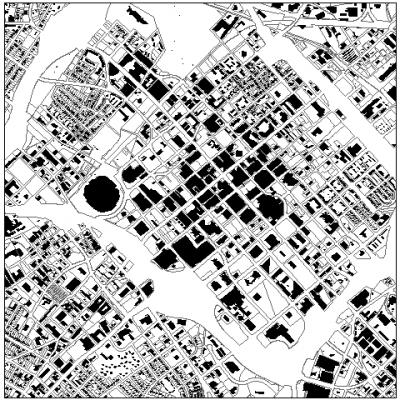
Transportation Summit focuses on networks
Charlotte discussions might affect pending federal transportation bill
Submitted on 09/12/2008. Tags for this image:As high fuel costs force us to re-examine the wisdom of the “highways now, highways tomorrow, highways forever” ideology, CNU’s Transportation Summit is a rare opportunity to work at the vanguard of a growing movement to redesign and renovate the American transportation network.
The ultimate goal of the Summit – from Nov. 6-8 in Charlotte, N.C. – is to decide CNU’s position on transportation networks. But the ripples from this year’s Summit could have far-reaching effects because the federal government takes up its six-year transportation funding plan in 2009.
“I met with Rep. Jim Oberstar, the House Transportation Chair, on Sept. 10, and he's interested in possibly incorporating urban road metrics in the new legislation,” says John Norquist, CNU’s president and CEO.
CNU is part of the T4America Coalition working to ensure that next year’s federal transportation bill takes the steps to link transportation and land use planning, smart growth and New Urbanism. “Transportation will be at the top of the agenda when the new Congress and the new administration convene in January. The Summit will have high-level discussions of what the next federal transportation bill needs to have to transform the American economy,” Norquist says.
The Summit starts with a general introduction to the ongoing discussions about transportation networks, upcoming federal legislation, a presentation by Andres Duany, of Duany Plater-Zyberk, and an overview of Charlotte. Several concurrent afternoon tours offer firsthand looks at Charlotte neighborhoods and the city’s new “Lynx” light rail line, and at the nearby town of Davidson, N.C. (home of Davidson College and a municipal ordinance mandating street connectivity).
Days two and three delve into detailed discussions of transportation networks; working groups will discuss how networks are defined, implemented, measured and sustained, barriers to networks, and how networks relate to places and modes, transit, emergency responders.
Check out the draft agenda here.
Danny Pleasant, interim director of Charlotte’s Department of Transportation, says the Summit’s tours, focusing on the myriad changes in Charlotte and Mecklenberg County, will be a highlight making the trip all the more worthwhile.
“The Center City tour is a study in transformation or urbanism where city is rediscovering its center. There is massive construction underway,” Pleasant says. “The light rail tour will also be exciting. The light rail is less than a year old and has 16,000 riders a day.
“Davidson is a classic college town managing growth exhibiting community wide commitment to traditional urbanism,” he adds.
Early registration ends on Oct. 15 – registration fees rise after that date, so register today.
AIA and AICP Continuing Education Credits will be available for the Summit; for engineers, CNU has applied for PDHs. Please check the Transportation Summit page regularly for updates.


